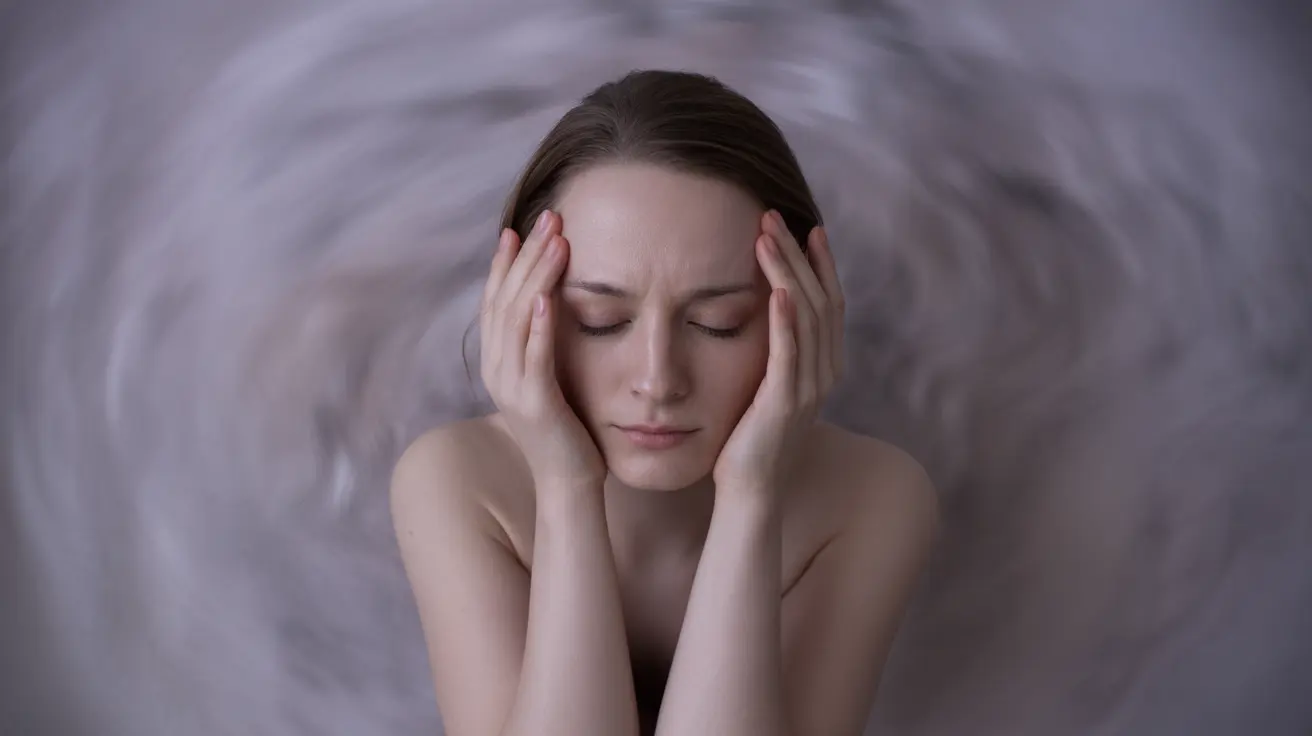If you've ever felt the room spinning or experienced lightheadedness during moments of intense anxiety, you're not alone. The relationship between anxiety and dizziness is both common and complex, affecting many people who struggle with anxiety disorders or panic attacks.
Understanding how anxiety can cause dizziness is crucial for managing these symptoms effectively and knowing when to seek professional help. Let's explore the connection between anxiety and dizziness, along with practical solutions for dealing with these challenging symptoms.
The Physical Connection Between Anxiety and Dizziness
Anxiety triggers the body's fight-or-flight response, releasing stress hormones that can affect multiple body systems. This natural response can lead to various physical symptoms, including dizziness, through several mechanisms:
- Blood flow changes
- Muscle tension
- Inner ear disruption
- Altered breathing patterns
When anxiety strikes, your body diverts blood flow to major muscle groups, potentially reducing blood flow to your brain and contributing to feelings of lightheadedness or unsteadiness.
Understanding Anxiety-Related Dizziness Symptoms
Anxiety-induced dizziness can manifest in several ways, and recognizing these symptoms is essential for proper management:
- Feeling lightheaded or faint
- Sensation of spinning (vertigo)
- Unsteadiness while walking
- Floating or swimming sensation
- Difficulty focusing vision
These symptoms often occur alongside other anxiety manifestations, creating a cycle that can intensify both the anxiety and dizziness.
The Role of Hyperventilation
One of the primary ways anxiety leads to dizziness is through hyperventilation. When anxious, people often breathe more rapidly and shallowly, disturbing the balance of oxygen and carbon dioxide in their body. This imbalance can cause:
- Lightheadedness
- Tingling in hands and feet
- Chest tightness
- Increased heart rate
Managing Anxiety-Related Dizziness
Several effective strategies can help control dizziness caused by anxiety:
Breathing Techniques
Practicing controlled breathing exercises can help regulate your breathing pattern and reduce dizziness:
- Box breathing (4-4-4-4 pattern)
- Diaphragmatic breathing
- Counted exhales
Grounding Exercises
These techniques can help you feel more stable and connected to your surroundings:
- The 5-4-3-2-1 method
- Physical grounding (feeling your feet on the floor)
- Focus on stable objects in your environment
When to Seek Medical Help
While anxiety-related dizziness is common, certain situations warrant professional medical attention:
- Severe or persistent dizziness
- Dizziness accompanied by chest pain
- Loss of consciousness
- Difficulty speaking or walking
- Sudden onset of severe headache
Frequently Asked Questions
- Can anxiety cause dizziness and lightheadedness, and how does this happen in the body?
Yes, anxiety can cause dizziness and lightheadedness through various mechanisms, including changes in blood flow, hyperventilation, and the release of stress hormones. The body's fight-or-flight response can affect your balance system and blood pressure, leading to these symptoms.
- What are common symptoms that occur alongside dizziness caused by anxiety?
Common accompanying symptoms include rapid heartbeat, sweating, trembling, shortness of breath, nausea, and chest tightness. These symptoms often occur together as part of the body's stress response.
- How can hyperventilation from anxiety lead to dizziness or feeling faint?
Hyperventilation during anxiety causes an imbalance in oxygen and carbon dioxide levels in your blood. This imbalance can restrict blood flow to the brain and lead to dizziness or lightheadedness.
- When should I see a doctor if I experience dizziness related to anxiety?
Seek medical attention if dizziness is severe, persistent, accompanied by other concerning symptoms like chest pain or difficulty speaking, or if it significantly impacts your daily life. A healthcare provider can properly evaluate your symptoms and rule out other potential causes.
- What treatments can help reduce dizziness that is caused by anxiety or panic attacks?
Effective treatments include breathing exercises, cognitive behavioral therapy, anti-anxiety medications when prescribed, regular exercise, and stress management techniques. A combination of these approaches often provides the best results.




